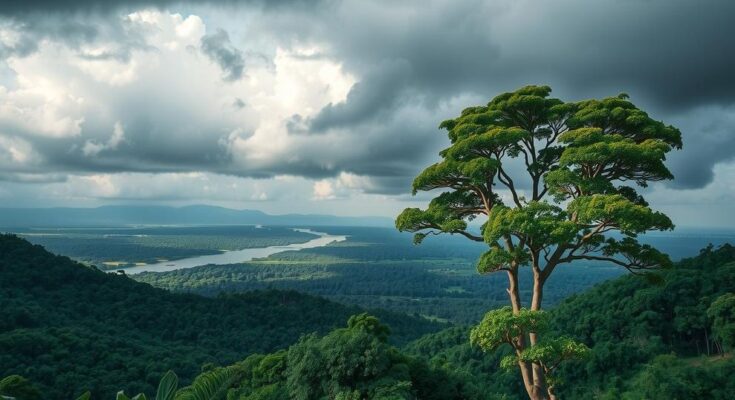In a somber address, UN human rights chief Volker Türk raised alarm bells over the unfolding violence in the eastern Democratic Republic of the Congo amid the Rwanda-backed M23 group’s offensive. He cautioned that without swift international action, conditions could deteriorate dramatically: “If nothing is done, the worst may be yet to come, for the people of eastern DRC, but also beyond the country’s borders.” Since late January, nearly 3,000 people have perished, and thousands more have suffered injuries due to M23’s brutal tactics, as heavy weapons have been unleashed in crowded regions.
The ongoing conflict has displaced countless residents as fierce clashes continue in the mineral-rich provinces of North Kivu and South Kivu, known for their long-standing instability. The M23, composed largely of Tutsi fighters, has made significant advances, including gaining control of strategic locations near the city of Goma and fast-moving toward Bukavu. A draft resolution was presented to the Human Rights Council, condemning Rwanda’s military support of the M23 and urging an immediate halt to hostilities, alongside calls for essential humanitarian access to those in need.
Türk painted a grim picture as he detailed tragic events from January 27, including bombings in Goma that ravaged local hospitals, resulting in numerous casualties among patients, including women and children. Disturbingly, reports indicated that during a prison escape at Muzenze, many female inmates experienced horrific violence, with 165 victims suffering rape and most meeting violent ends in a fire under suspicious circumstances. “I am horrified by the spread of sexual violence, which has been an appalling feature of this conflict for a long time,” Türk lamented, emphasizing the grave need for international scrutiny.
Bintou Keita, leading the UN peacekeeping mission (MONUSCO), echoed Türk’s deep concerns, noting dire humanitarian conditions in Goma where dead bodies litter streets under M23’s control. She highlighted troubling health risks stemming from ongoing conflict, such as cholera and mpox, alongside rising threats of sexual violence. The dire lack of power and fuel has hindered medical personnel, further aggravating the humanitarian crisis in the region, prompting Keita to urge immediate international assistance to Goma.
The DRC’s Minister of Communications, Patrick Muyaya Katembwe, slammed Rwanda’s ongoing support for armed groups, asserting that such backing has intensified violence for decades over mining interests. Dismissing these claims, Rwanda’s UN Ambassador James Ngango painted a different picture, alerting the world to an impending attack on Rwanda, alleging that weapons amassed by Kinshasa-backed forces posed a direct threat.
In closing, Türk emphasized the universal responsibility to address the plight of eastern DRC’s people, reminding us that the materials fueling our tech and communication industries often originate from this beleaguered region. “The population in the eastern DRC is suffering terribly, while many of the products we consume or use, such as mobile phones, are created using minerals from the east of the country. We are all implicated.”
Volker Türk, the UN human rights chief, warned that the violent crisis in eastern DRC, fueled by the M23 group and Rwanda’s military support, could worsen without global intervention. Recent attacks have resulted in thousands of deaths and led to severe humanitarian concerns, including sexual violence and health risks. Calls for immediate humanitarian access and international accountability echo through the urgency of this dire situation.
The ongoing humanitarian crisis in eastern DRC, exacerbated by M23’s offensive and Rwanda’s involvement, signals urgent international action is imperative. With escalating violence leading to thousands of deaths and injuries, the situation continues to worsen, particularly concerning rising sexual violence and health risks. A collective effort is crucial to alleviate the suffering and restore stability in a region rich in resources but plagued by conflict.
Original Source: news.un.org



